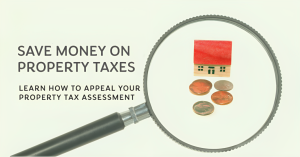Are you a landlord looking to optimise your rental property investment? Successful property management includes using effective tax planning strategies. In this article we’ll explore expert landlord tax planning strategies to boost returns. Build a successful rental property portfolio and navigate changing UK landlord tax rules.
Understanding Landlord Taxation
As property owners who generate rental income landlords are subject to various taxes that impact their financial obligations. The two primary types of taxes that landlords must consider are property and income taxes. A expert understanding of these tax nuances is important for better tax planning and optimising financial outcomes.
Property Taxes
Property taxes are levied by local governments based on the assessed value of the Properties. Landlords must pay property taxes annually and the funds collected from these taxes are used to support local services such as schools infrastructure and public safety. The local tax rate and the property assessed value determine the amount of property tax owed. Property owners must stay updated on local property taxes and pay them on time to avoid penalties.
Nuances and Considerations
Property tax rates can vary significantly from one jurisdiction to another. So landlords should research the rates specific to their property’s location. Some areas may offer property tax exemptions or reductions for certain property types or situations. Such as property or properties used for affordable housing.
Income Taxes
Income taxes are another crucial aspect of landlord taxation. Rental income is considered taxable income by the government. Landlords must report their rental income on their annual tax returns and pay income tax on the net profit generated from their rental properties. Net profit is calculated by subtracting allowable expenses from the rental income. Allowable expenses include mortgage interest property management fees maintenance, repair costs insurance premiums and more.
Depreciation
Depreciation is another factor to consider. While it’s not a cash expense. It allows landlords to deduct a portion of the property value over time to account for its wear and tear. Understanding these nuances is pivotal for effective tax planning.
Optimising Deductions
By keeping meticulous records of all expenses related to the property landlords can maximise deductions and minimise taxable rental income.
- Tax Credits: Being aware of available tax credits for rental properties. Such as those related to energy-efficient upgrades or accessibility modifications, can lead to additional tax savings.
- Legal Compliance: Failing to understand and fulfill tax obligations can result in penalties or legal issues. Thus comprehending tax requirements is crucial to maintaining compliance.
- Long-Term Strategy: With a solid grasp of taxation landlords can implement long term tax strategies that align with their investment goals. Such as leveraging depreciation for greater tax benefits over time.
Benefits of Expert Tax Planning

Expert tax planning offers landlords a range of financial advantages that can significantly impact the profitability of their rental property investments. By strategically managing their tax obligations landlords can enjoy reduced tax liability increased cash flow and ultimately higher returns on their investment. Let’s examine these advantages in greater detail:
- Reduced Tax Liability: Expert tax planning involves carefully analysing the tax code and regulations to identify legal deductions credits and strategies to minimise the amount of taxes owed.
- Increased Cash Flow: One of the immediate benefits of reduced tax liability is an increase in cash flow. With lower tax obligations landlords have more funds for property related expenses improvements or expanding their rental property portfolio. Having more cash on hand can be really helpful when unexpected expenses or rental vacancies come up.
- Higher Returns on Investment: Landlords can improve their investment returns (ROI) by smart tax planning. When a more significant portion of rental income is retained due to minimise taxes. The ROI on the initial investment in the property becomes more favourable. A better ROI can contribute long term financial growth and a more profitable rental property portfolio.
Key Tax Planning Strategies for Landlords
Deductible Expenses
Identifying and documenting deductible expenses is a foundational strategy in tax planning for landlords. Deductible expenses are costs associated with maintaining and operating your rental property that can be subtracted from your rental income before calculating your taxable income.
Interactive Tax Deduction Guide: Use our interactive guide to identify common deductible expenses for landlords.
Depreciation
Depreciation is like a special tax break for landlords. It helps them gradually get back the money they spent on their rental property. Residential rental properties can be depreciated over 27.5 years, while commercial properties are depreciated over 39 years.
1031 Exchanges
A 1031 exchange a like kind exchange is a tax strategy that enables landlords to defer capital gains taxes when selling a property by reinvesting the proceeds in another property of equal or more excellent value.
Utilising Tax Credits
Tax credits are incentives the government provides to encourage specific behaviours. Such as making energy-efficient upgrades to your rental property. By exploring available tax credits you can significantly reduce your tax burden.
Setting Up a Legal Entity
Establishing a legal entity for your rental property. Such as a limited liability company (LLC) or a partnership can provide several benefits. One key advantage is liability protection.
- Legal Entity Guide: Access our comprehensive guide to setting up a legal entity for your rental property.
- Keeping Impeccable Records: Keeping good records of your rental income and expenses is part for effective tax planning. These records provide evidence to support your deductions and claims ensuring compliance with tax regulations.
Working with Tax Professionals
Collaborating with tax professionals experts in property taxes can provide valuable insights and guidance. Tax professionals know tax laws inside and out. They can help you understand complex codes and maximize deductions and credits for a better tax strategy.
Staying Updated with Tax Laws
Tax laws and regulations can change over time. Staying informed about these changes is crucial to ensuring your tax planning strategy remains effective and compliant. What was advantageous one year might not be the next. Regularly consulting tax professionals or staying informed through reputable sources helps you make informed decisions and adjust your strategy accordingly.
Investment Property Exit Strategies
Planning your exit strategy is important for minimising tax liabilities when you sell or transfer your rental property. Depending on the circumstances different tax implications might arise from property sales. By carefully considering your exit strategy. You can optimise the timing and method of selling to reduce potential tax burdens.
The foundations of UK taxation for a deeper dive for Non-Domiciled Non-Resident UK Tax Don’t miss out!
Conclusion
Incorporating expert tax planning strategies into your property management approach can bring significant financial advantages over time. When you’re well versed in accounting and property taxes. You can navigate these complexities with ease. Just like a seasoned expert. By optimising your tax position. You can enhance your rental property investments and secure a more prosperous future.
Maximize cash flow reduce tax liability and boost investment returns with key tax planning strategies for landlords. Securing a prosperous rental property portfolio.










